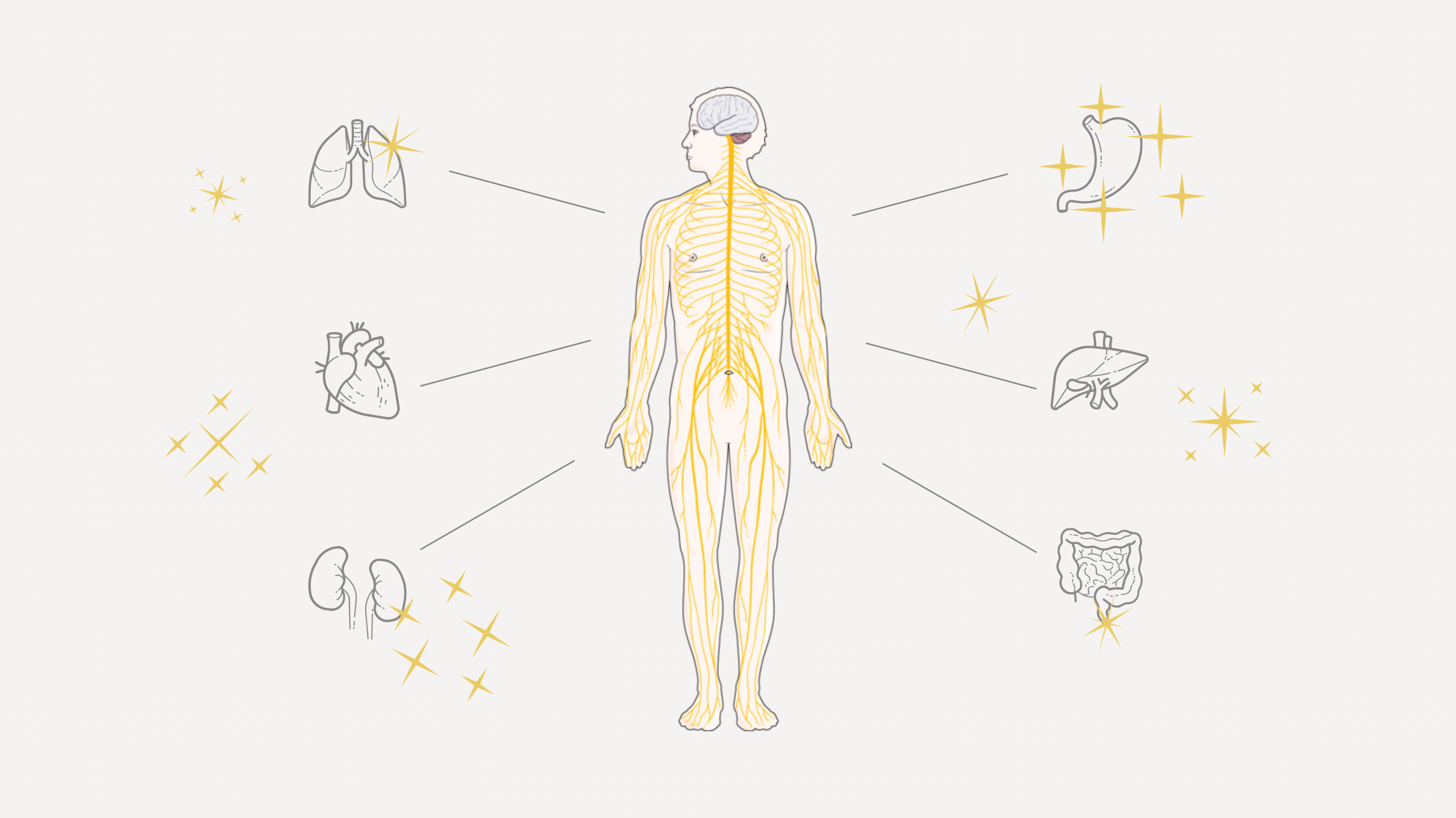Understanding Interoception: The Sixth Sense Unveiled
Core Concepts
Interoception is a crucial internal sensory system that allows us to perceive and interpret signals originating from within the body, influencing both mental and physical health significantly.
Abstract
Interoception, our sixth sense, plays a vital role in understanding our body's inner sensations. It helps the brain maintain homeostasis and guides actions based on internal signals. Factors like trauma, environment, and health impact interoceptive abilities. Research links interoceptive awareness to mental health and disorders like depression and anxiety. Training interoceptive awareness can lead to reduced anxiety levels. Practical exercises like body scanning and journaling can improve interoceptive awareness.
Customize Summary
Rewrite with AI
Generate Citations
Translate Source
To Another Language
Generate MindMap
from source content
Visit Source
nesslabs.com
Interoception: The hidden ‘sixth sense’
Stats
"A weird thing may happen: simply reading this cautionary advice might make you experience the burning feeling of the hot oil droplets!"
"Many factors shape our interoceptive abilities."
"Research suggests that a higher degree of interoceptive awareness has been linked to enhanced mental health."
"Those with more accurate interoception aligned their choices with cardiac activity."
"Participants were trained using heartbeat detection tasks, receiving feedback on their performance."
Quotes
"A weird thing may happen: simply reading this cautionary advice might make you experience the burning feeling of the hot oil droplets!"
"Many factors shape our interoceptive abilities."
"Research suggests that a higher degree of interoceptive awareness has been linked to enhanced mental health."
"Participants were trained using heartbeat detection tasks, receiving feedback on their performance."
Key Insights Distilled From
by Anne-Laure L... at nesslabs.com 08-21-2023
https://nesslabs.com/interoception
Deeper Inquiries
How does interoception impact decision-making processes beyond those mentioned in the article?
Interoception plays a crucial role in decision-making processes beyond what was discussed in the article. Apart from influencing choices based on physiological responses like heart rate, interoceptive signals can also affect emotional decision-making. For example, individuals with heightened interoceptive awareness may be more attuned to their gut feelings or bodily sensations when making decisions that involve risk or uncertainty. This intuitive sense can provide valuable insights that rational analysis alone may not capture. Additionally, interoception can influence social decision-making by affecting how individuals perceive and respond to cues from others' body language and emotions. People with higher interoceptive awareness may be better at empathizing with others and understanding non-verbal communication cues, leading to more informed interpersonal interactions.
What are potential drawbacks or limitations of relying heavily on interoceptive signals for guiding decisions?
While enhancing interoceptive awareness can have numerous benefits, relying too heavily on internal signals for decision-making has its drawbacks and limitations. One potential limitation is the subjectivity of interpreting bodily sensations. Interoception is a highly individualized experience, meaning that what one person perceives as a signal of danger or opportunity may differ significantly from another's interpretation. This subjectivity could lead to biased decision-making if individuals misinterpret their internal cues.
Another drawback is the potential for cognitive biases to influence how we interpret our bodily sensations. For instance, confirmation bias might cause someone to selectively attend to internal signals that align with their preconceived beliefs or desires while ignoring contradictory information. Over-reliance on interoceptive signals could also lead to impulsivity in decision-making if individuals prioritize immediate physical sensations over long-term consequences or rational deliberation.
Furthermore, certain medical conditions or mental health issues could distort an individual's interoceptive awareness, leading them astray in making sound decisions based on these internal cues.
How can enhancing interoceptive awareness contribute to broader societal issues or challenges?
Enhancing interoceptive awareness at a societal level holds promise for addressing various challenges faced by communities today. Improved collective understanding of inner states through practices like mindfulness training could foster greater empathy and emotional intelligence among individuals within society. By being more attuned to their own emotions and bodily sensations, people may develop stronger connections with others' experiences and perspectives.
Moreover, enhanced interoceptive awareness has the potential to improve mental health outcomes at a population level by promoting self-regulation skills and stress management techniques grounded in recognizing and responding effectively to internal signals of distress.
In educational settings, integrating practices that enhance students' interoceptive awareness could lead to improved emotional regulation skills among young learners, potentially reducing instances of behavioral issues related to impulse control or emotional dysregulation.
On a broader scale, increased societal focus on developing interioceptve abilities could pave the way for more compassionate leadership styles characterized by greater self-awareness and empathy towards diverse stakeholders’ needs within organizations and institutions.
0
